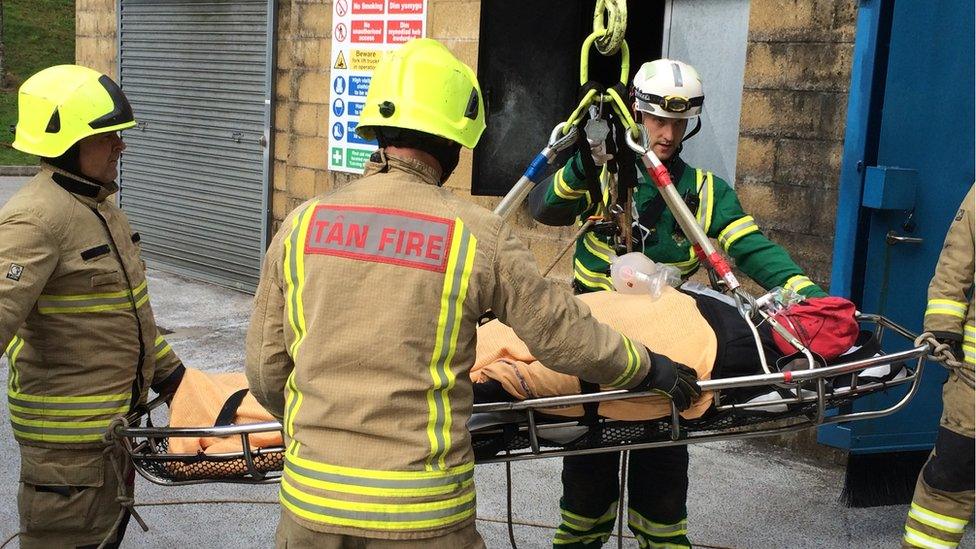'My son's suicide bid affected my mental health'
- Published
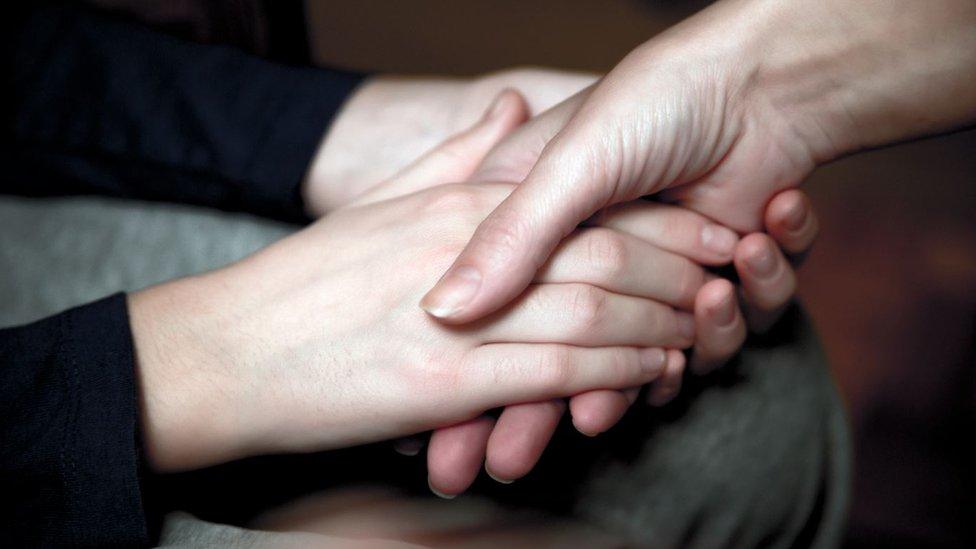
A mother whose 12-year-old son tried to kill himself has said the "crisis" led to her seeking help for her own mental health.
Sonja's son was admitted to hospital for three days, which she called "traumatic for both of us".
"At one point everything was so overwhelming I thought my head was going to blow," she said.
Mind Cymru said it was "crucial" people caring for a relative also look after their own wellbeing.
Sonja and her son had been enrolled on Newport Mind's Kith and Kin, external course.
The programme, which supports parents and children where one of them is experiencing mental health problems, has helped 79 people in the past year alone.
The sessions focus on coping with mental health, parenting and "building resilience".
Two days after her son was discharged from hospital in May, Sonja sought one-on-one support from Newport Mind.
"You're hurting for your child and you don't want them to go through that, you would rather take the pain away from them and go through it yourself," she said.
"It was so distressing because that night in question I had to physically restrain him from trying to kill himself and I just didn't know what to do other than pile him into the car and take him straight to A&E."
Sonja had to restrain her 12-year-old son from killing himself
Sonja, who has suffered from depression and self-harm, said she could not show how she was feeling because "I didn't want my son to pick up on my own mental health issues".
"The sessions with Mind started very quickly for myself, it was two days after we left hospital. The continuing support has been amazing," she added.
She now wants to volunteer with the charity, to help other relatives facing a similar experience.
There are 20 "Local Mind" groups in Wales, external which offer a range of services including one-on-one support, advocacy and group forums.

Some of the local Minds in Wales
Simon Jones, of Mind Cymru, said it was "crucial" people caring for a relative with mental health problems get support
Simon Jones, head of policy and influencing at Mind Cymru, said people's health and wellbeing can be impacted by looking after a relative with a mental health condition.
He said this can include stress, anxiety, isolation or depression.
"What we try and do is provide them with an environment where they can talk about some of the challenges they face, talk about how they're feeling but also get advice and support from others maybe that are in the same situation as them or from our own practitioners," Mr Jones added.
"It's absolutely crucial that people in caring positions are seeking support and recognise when they are coming under pressure as well."
If you are feeling emotionally distressed and would like details of organisations which offer advice and support, click here or you can call for free, at any time to hear recorded information on 0800 066 066.
- Published12 February 2016

- Published4 December 2018

- Published26 August 2017
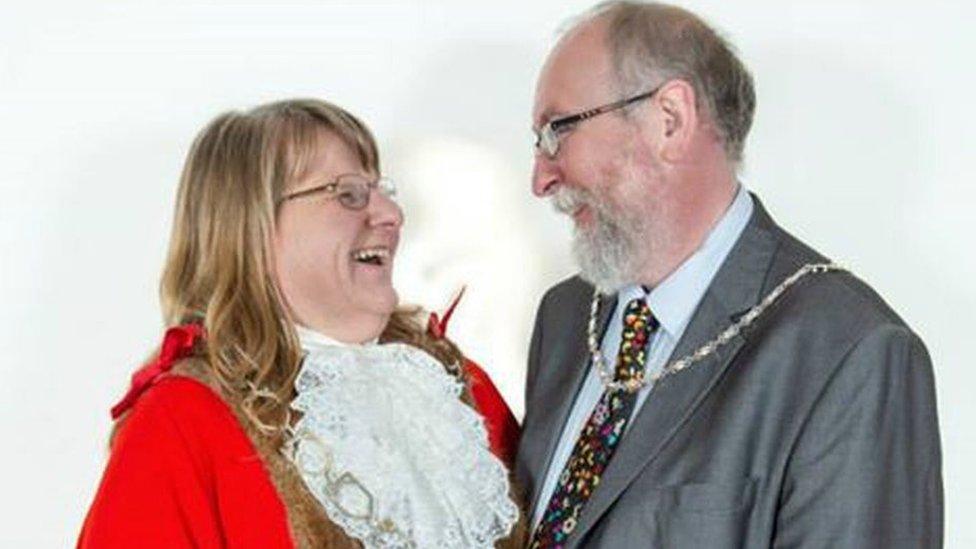
- Published17 October 2017
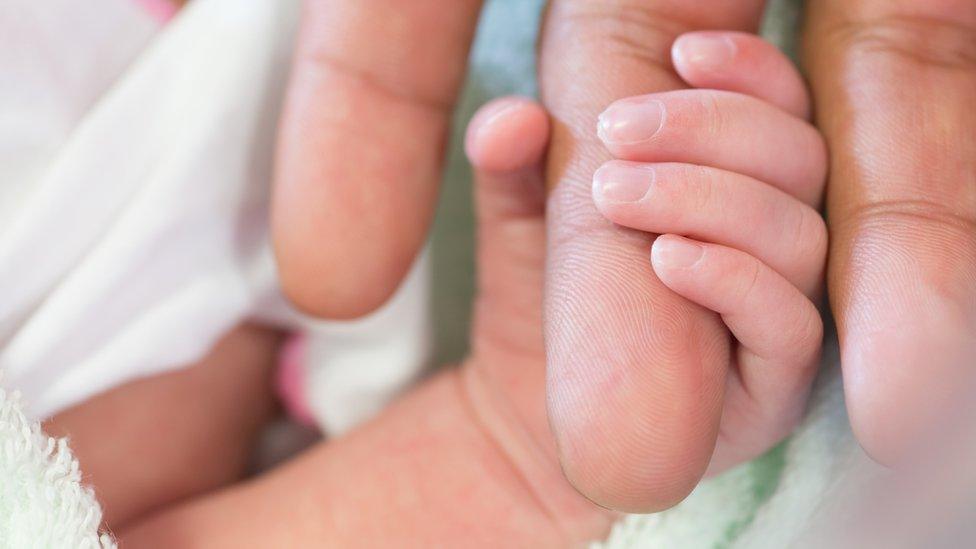
- Published16 November 2017
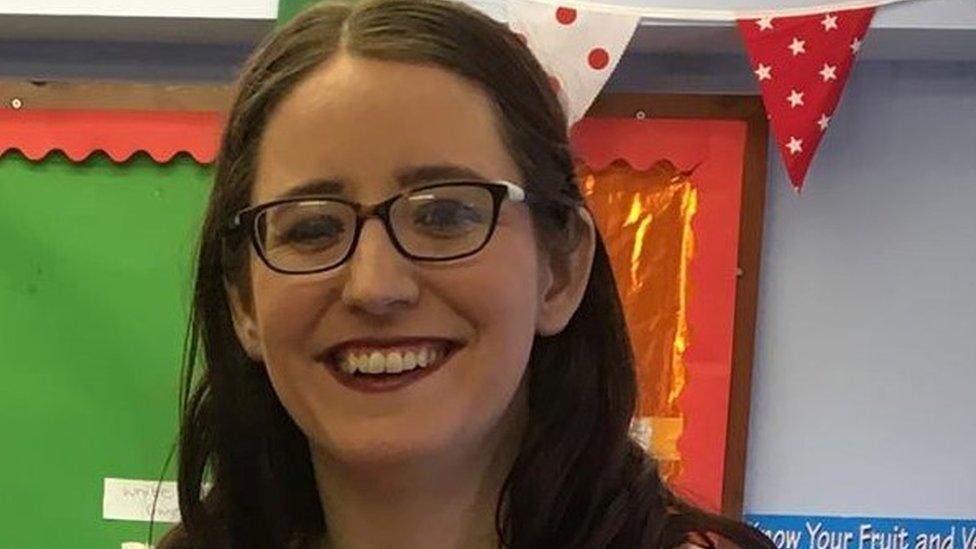
- Published26 August 2017
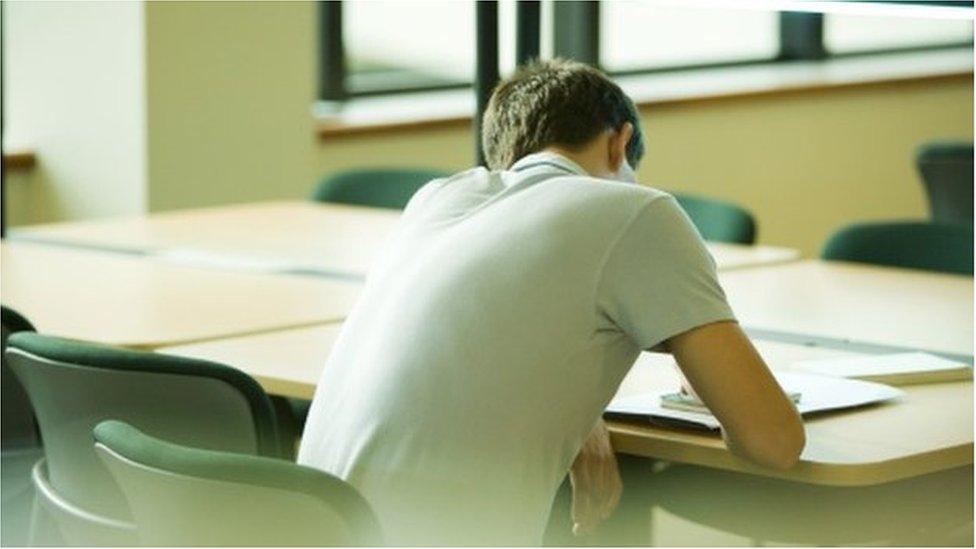
- Published18 August 2017
